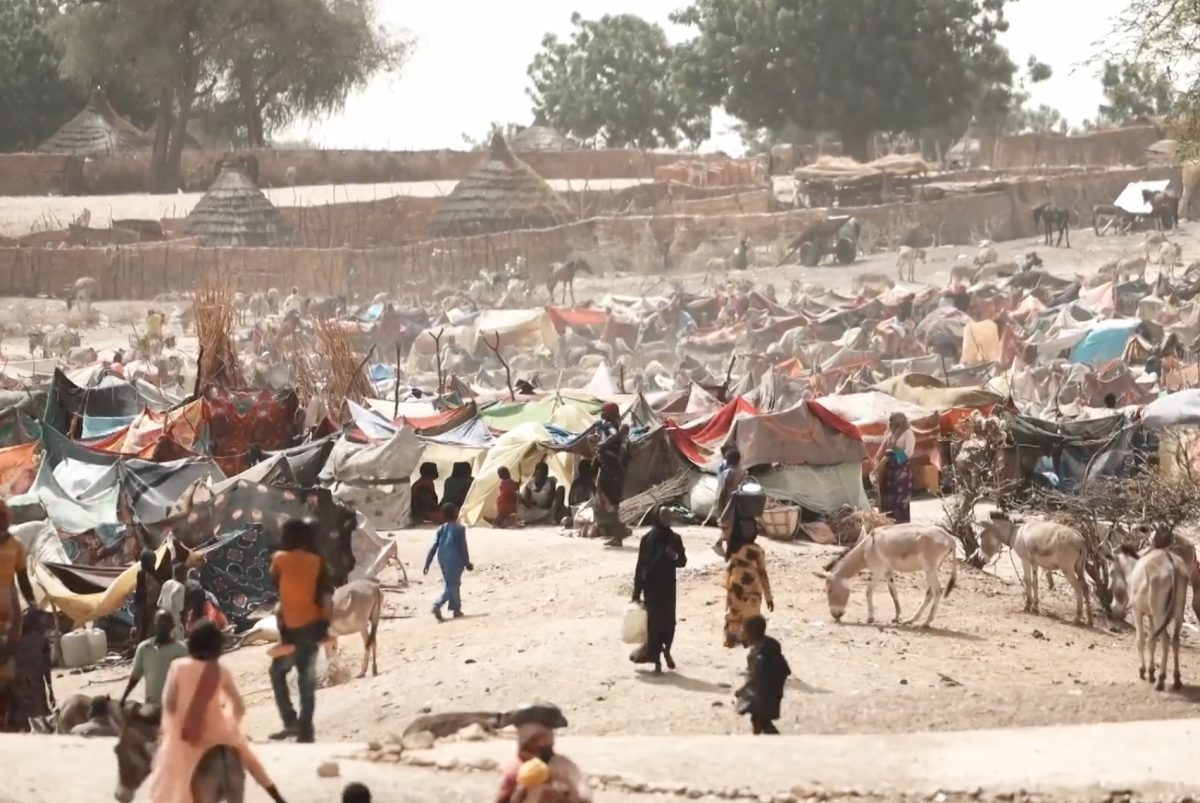We’ve all seen the cycle: the sudden start of a horrific war or genocide gains massive attention from the media, garnering donations, boycotts and an inspirational amount of support from all over the world. It’s all anyone can talk about – until it’s not.
The conflict rages on as months or years pass, but the world forgets. As everyone moves on to the next new exciting story, victims in places like Congo, Syria and Ukraine continue to suffer every day from violence and food insecurity. This harmful habit in journalism and around social media creates a world where trendy issues are the only ones spoken about.
Following Russia’s invasion of Ukraine in February of 2022, the world took to social media to amplify the voices of Ukranians. Support for the victims of the war created unity between sympathizers online. People created websites to match refugees with hosts, posted countless pictures wearing blue and yellow and donated to the Ukrainian military and support groups.
Now, almost two years later, the war has continued to ravage Ukraine, but few people are spreading awareness. Although the U.S. government still aids Ukraine, most people have moved on to other news stories, leaving the country without support from the rest of the world. Ukrainian President Volodymyr Zelensky worries waning interest in Ukraine will harm war efforts.
“If you feel tired of this topic, Ukraine will disappear from the front pages of the world and will not get what we need to defend ourselves,” Zelensky said. While it’s easy for those outside the conflict to forget the damage and the lives lost, our ignorance directly harms Ukrainians, allowing their oppressors to attack them without objection from the public.
More recently, violence in Gaza escalated as war broke out between Israel and Hamas. Once again, footage of the conflict flooded social media and news websites, with people from around the world posting in support of either side and discussing the conflict’s ethics both online and at home. However, as the months passed and the conflict worsened, it began to be treated as old news on social media.
Although coverage of the war can still be found in newspapers, it has started to dissipate from social media, despite the violence continuing. The decline in coverage for this war has pushed it from the forefront of people’s minds and made them less likely to urge their governments to address the humanitarian crisis unfolding in Gaza, where over 1.9 million people have been displaced.
The Sudanese war that began last April was forgotten more quickly than the conflicts in Ukraine and Gaza. Although over 7 million people were displaced from their homes, the conflict has been largely ignored by Western media. The discrepancy in media coverage is most likely due to the fact that the conflict in Sudan less directly impacts American lives than Ukraine and Gaza.
The U.S. government gives less money to Sudan than it gives to other countries, and the Sudanese war isn’t as impactful to American politics, so American citizens don’t spend much time researching it or supporting humanitarian aid for it. The U.S. has been involved with the strengthening and stabilization of Sudan but ignored conditions in Khartoum in 2019 following the overthrow of President Omar al-Bashir. Since the conflict in Sudan started, over 80% of healthcare services have been unable to operate and thousands of people have been killed. The victims of this war need support from other countries, which will only come if the significance of the war is reflected in journalism and on social media.
The conflict in the Democratic Republic of the Congo has been listed as one of “the world’s most neglected crises” of this century. Just one-third of the required funds for life-saving assistance have been received for many overlooked humanitarian catastrophes. Food insecurity has risen in Congo this past decade by 400%. Congo has struggled with violence and instability for decades, but news coverage has declined because people feel it has become irrelevant. This effect is known as “crisis fatigue.” Wars and genocides are not guaranteed headlines, even as they continue to spiral in Congo and many other countries. People get tired of hearing about the same conflicts year after year and eventually lose interest.
Lack of information about current events fuels racism and xenophobia, which contributes to the refugee crisis. Human Rights Watch explains that the media and politicians have characterized asylum seekers as criminals and thieves due to the illegal way in which they are often forced to enter Western countries. This causes people to fear refugees and use their vulnerability to blame them for rising crime, unemployment, and other issues, creating a cycle of harm and danger. Social media can humanize refugees and help people be more open to accepting people into their countries.
Continuing coverage of older conflicts in the media helps people stay updated about current events, which lets them spot misinformation more easily. False information and AI-generated photos and videos spread like wildfire, often influencing peoples’ stances on major topics. Although social media can be useful as it keeps everyone updated on the news, it’s important to recognize that it can’t always be trusted. When people lose interest in a conflict and stop reading about it in the news, they’re more susceptible to believing lies. It’s our responsibility to find news from reliable sources and look deeper when something doesn’t sound right or lacks credibility. Staying educated allows us to spot misinformation more easily and avoid propaganda.
Staying informed and spreading awareness about conflicts is extremely important in today’s society. Silence empowers oppressors, so instead of ignoring conflict and waiting for it to subside, we need to educate ourselves and advocate for the voiceless by posting online, contacting our government officials and making informed voting decisions. News organizations have the responsibility to cover crises, whether they’re trendy or not, for the sake of providing public information and ending our “ignorance is bliss” culture.









